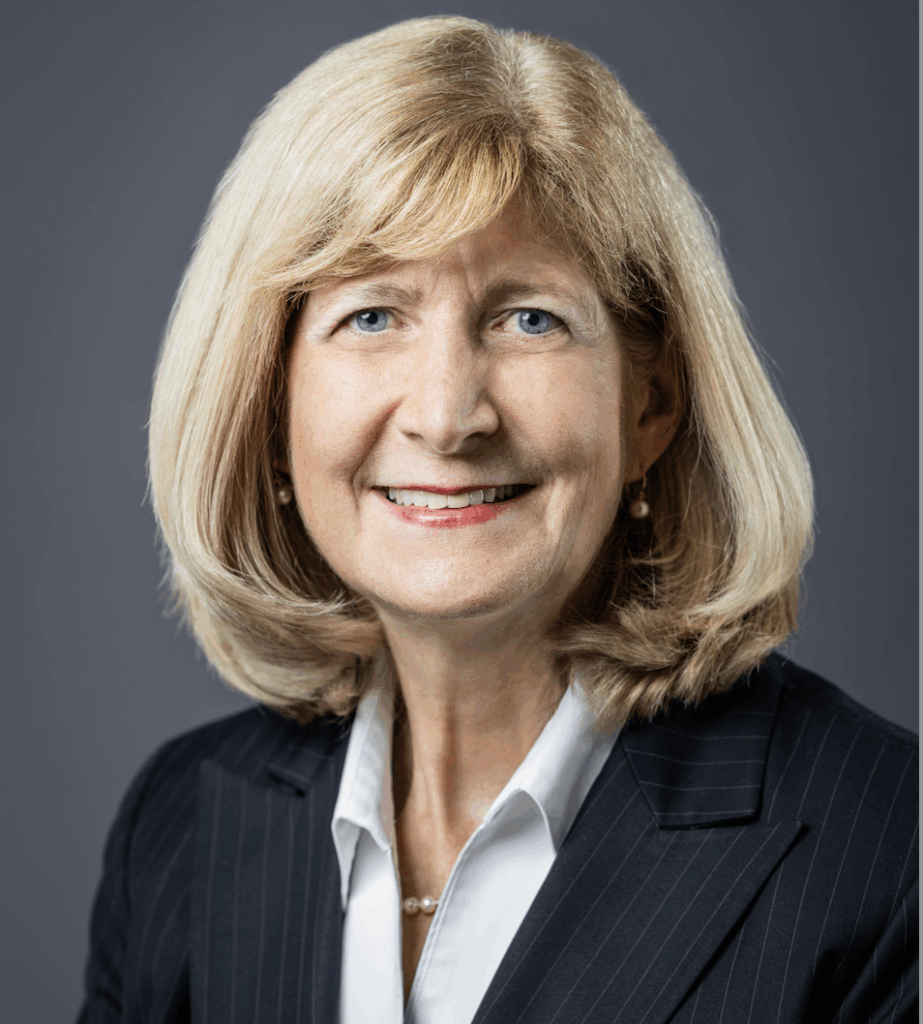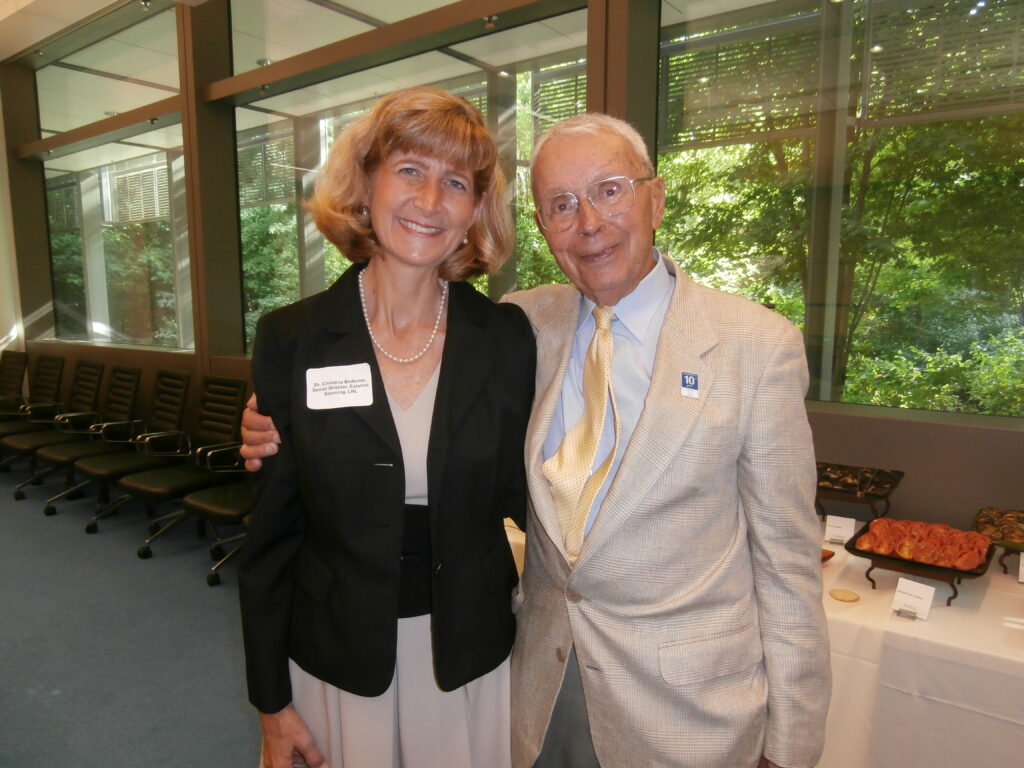Princeton Chem alum Christina Bodurow *84 runs for ACS president
As a Ph.D. candidate advised by Marty Semmelhack, Christina Bodurow *84 distinguished herself at Princeton Chemistry using organometallics to make natural products. That early promise led to years of success as a pharmaceutical business leader with Eli Lilly and Company, IQVIA, and most recently as the deputy director and Chief Operating Officer of the AViDD/SyneRx NIH/NIAID grant at the Stanford University School of Medicine, and chief operating officer at 4J Therapeutics.
Today, Bodurow, who lives in Indianapolis, Indiana, is running for president of the American Chemical Society (ACS). She has 40 years of membership in the organization, including six years on the group’s Board of Directors. Bodurow is running against Dawn Mason of NC State for the three-year term.
ACS members will receive a ballot by email in mid-September, and can vote until Oct. 10th. Enjoy this Q&A on why Bodurow is running and what she hopes to accomplish. For those looking for more information on the election, see the ACS elections page.
How would you define the mission of the ACS today?
The ACS is one of the largest professional scientific societies in the world, with an international membership in over 140 countries and over 200K members. It serves as the voice of chemistry, the leader in advancing the chemical profession in all forms. It owns and operates a publications division of over 60 world-class publications, including the Journal of the American Chemical Society (JACS). It is a very large organization with a big reach, and right now a key focus is to continue to be a strong voice for science education, innovation, and research.

Christina Bodurow, Princeton Chemistry Ph.D. alum, is running this fall for president of the American Chemical Society.
What is your leadership philosophy?
In an organization as large and diverse as the ACS, I believe the most critical attributes of a leader are 1) to embody ACS values and culture, 2) set direction, and 3) motivate everyone to implement the mission. My ACS mantra, adopted decades ago, is best said by baseball great Satchel Paige: “None of us are as smart as all of us.” That feeling of respect, trust, and confidence in one another sets the culture in which teams productively work together to achieve the mission and continuously improve the organization. This will be my way of thinking and working if I’m elected ACS President.
Why are you seeking this role?
My candidacy comes at a challenging time, given what’s happening in the scientific enterprise. I’m interested in working with the ACS Board of Directors and ACS government relations to interact with federal agencies and legislators, and advocate for science. We need to ensure that future generations of scientists and chemists have appropriate STEM education funding to matriculate into academic, industry, and government careers.
The ACS has been a part of my life for literally all of my life. I’ve had the opportunity to lead and participate in many organizations within the ACS, and was on the board of directors for six years. So for me, serving as the president is the ultimate contribution you can do to pay back all the learning and benefits I’ve received throughout my career.
Briefly, what are your qualifications?
Industry-wise, I have over 40 years of experience in the global development of medicines. I have built global business units from scratch and taken small businesses to full-scale global success stories, as well as participated in biopharma start-ups. I am highly committed to developing strong leaders among younger members of the ACS who can go on to take on positions of greater responsibility.
With the ACS, I currently serve on the Committee on Economic and Professional Affairs. More recently, I was on the Committee on Budget and Finance; served as Director District II and Ex Officio; the Committee on Strategic Planning; and as the chair of the Strategic Planning Process Improvement Subcommittee.
The greatest integration of my pharma industry and ACS experience occurred during my two terms on the ACS Board of Directors, when I led a number of subcommittees and task forces focused on strategic planning, diversity and inclusion, and industry participation.

Bodurow in 2014 with Professor Ted Taylor at the dedication of the Taylor Commons Alimta plaque.
Your candidate literature mentions three areas you would focus on. What are these?
1) My own career has been a progression of multi-disciplinary scientific experiences, and I really think that’s where the future is. So my first objective is to create connections across ACS divisions and technical activities, resulting in programming that provides multi-disciplinary experiences, similar to those that many of us have lived in our professional lives. The scientific community recognizes that many global problems are solved at the interfaces of disciplines, with scientists collaborating and sharing knowledge towards a common goal. I would like to expand this interdisciplinary approach for ACS activities and how members experience them.
2) Having spent my career in industry and recognizing what an incredible contribution industry can make to the ACS, I think it’s critical that we do everything we can to bring back industry members in all different functions within the society. We need to find a way to reconnect and make sure that we are communicating the relevance of the ACS to industry.
3) The third objective is actually something that has always been a passion of mine: chemistry and the arts. There are literally thousands of chemists who are artists, musicians, sculptors, and in the theater arts. This is common ground where we can connect with each other and with the public. The arts are a universal language, and we can create something that speaks to the public and create a bridge to chemistry.
How do you plan to deepen involvement of graduate students and postdocs?
One way is to let young chemists know that the ACS offers many different avenues to be involved as a professional chemist and to expand your knowledge base and your network far beyond the place that you are working or studying. There are 32 divisions within the ACS that you can join that allow you to immediately become part of a scientific community that is global, that is actively researching, publishing, and working with each other. Joining ACS is an avenue to significantly advance and accelerate your career because it gives you a global network of people who are committed to chemistry.
Any final words on your candidacy?
My interest in chemistry actually started when I was in 10th grade at Dearborn High School. I had an absolutely amazing high school chemistry teacher who saw something in my ability to work in his class. I went to college telling everybody I was going to be a chemist and I never looked back. I have literally been a chemist for my whole life. It’s part of who I am and what I’m passionate about. It would be the honor of my lifetime to serve in the ACS president’s succession for three years and to work collaboratively ensuring that ACS’ stand for science and education is heard.
